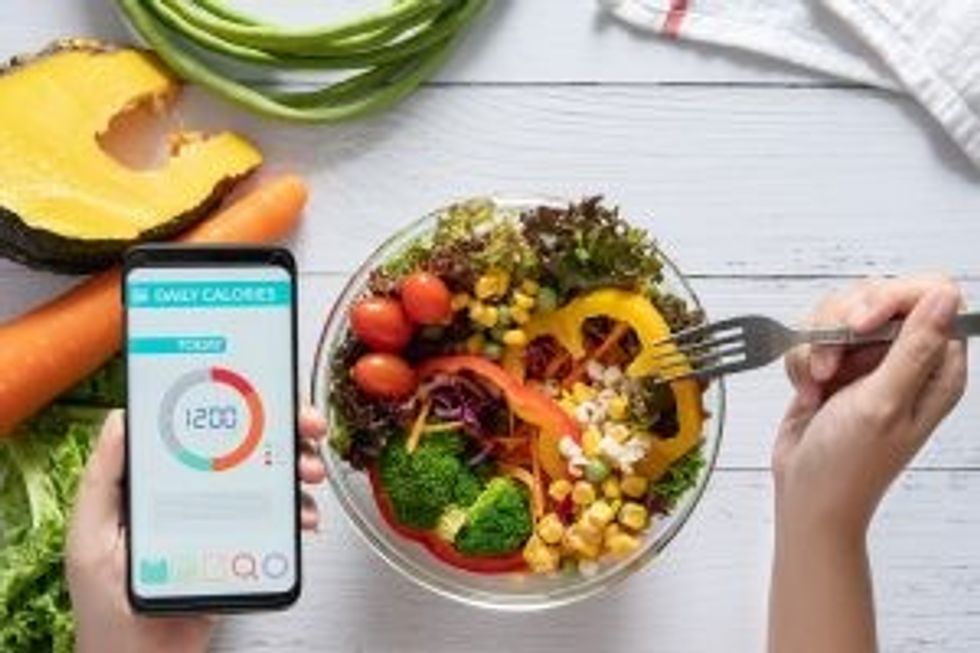A GUIDE TO LOSING LOCKDOWN WEIGHT AND FINDING FITNESS
NOW that lockdown restrictions are being lifted, a top priority for many people will be to lose the weight they put on after prolonged time indoors.
While some will jump straight back into old routines, many won’t find it so easy to pick up where they left off. A lack of motivation, a fear of returning to the gym and being out of shape might prevent some from realising their aim.
So, with that in mind Eastern Eye put together an easy-to-follow guide for all ability levels to get started on the road to fitness and feeling stronger.
Get good shut eye: Let’s face it; sleep patterns have been disrupted during the pandemic and it’s important to get this back on track. A wellrested body that has had seven-eight hours of quality sleep is able to do a lot more physically and mentally, which aids recovery when exercising. You can retrain sleep patterns by disconnecting from electronic devices before bedtime and swap with reading, meditating or just having some quiet time to relax the mind. The added extra energy from a good night’s rest will also enhance your workout performance, which will subsequently give you the desired results.
Healthy hydration: A body needs to be fuelled adequately and water is a vital element. Proper hydration keeps the body energised for longer and lessens calorie intake because it’s common for the brain to confuse thirst for hunger. Aim to drink around 1.5-2 litres a day, especially on days you have exercised. Drinking water also boosts metabolism and offers countless benefits like healthier skin and enhancing your mood.
Push yourself: Having a can-do mindset is important when embarking on a fitness journey. Believing that you can do it and accepting that it may take time to see results is the beginning of getting motivated. Remember to reward yourself after hitting goals (realistic ones) and avoid beating yourself up on days there are setbacks. You’re human and it happens. Enjoy the journey of progress; your body is amazing. Practising mindfulness is a great way to overcome obstacles by keeping the mind calm and focused.
You are what you eat: Exercise is important when losing weight but eating healthily is equally, if not more, essential. Balanced meals provide the body with vital nutrients and curbing junk foods will reduce calories. Cutting down on processed food and making protein a key part of your diet helps. Avoiding heavy meals at night before going to bed and swapping sweet treats with healthier alternatives is a game-changer. And you can’t go wrong introducing nutritious foods like salmon, eggs, leafy green vegetables, chia seeds, fruit, black beans, soups, avocados, whole grains, nuts, chickpeas, oats, pumpkin seeds, lentils, olive oil and quinoa into your diet. Your gut will love you!
Chew it over: The simple act of eating slowly is underrated. Not only does it prevent overeating by sending signals to your brain that your stomach is full, but it also allows vital nutrients to be absorbed effectively by your body and reduce unnecessary stress on the stomach.
Size matters: A simple but remarkably effective way to reduce calories and avoid weight gain is to check portion sizes. Perhaps start by serving food on a smaller plate, which tricks the brain into thinking a larger quantity of food has been consumed.
Fantastic Apps: There are loads of free apps for everything fitness related, from monitoring calories consumed, steps taken, sleep patterns, water intake, actual exercise summary to pushing you to run a little bit faster. They make it easier to get motivated, track progress and reach goals. Download some today.
Bin the scales: Literally get rid of them. Weighing scales do not give an accurate picture, which can be demotivating. Muscle weighs more than fat, you might be bloated, or your period may be approaching in which case the numbers on a scale will not necessarily be a true indicator. What is more important is how you feel – do your clothes fit better? Do you feel stronger? And can you visibly see a difference in the mirror? These are the real guides to your progress.
Your body loves movement: The first step towards fitness is to get moving. Start off slowly with a simple walk and stretches before gradually building up to intense exercise as this will help to prevent injuries as well as boost your confidence. Although aerobic exercises like running are great calorie burners, it’s important to include strength training too. Exercising with weights is a win-win because it builds muscle, which burns fat even while resting and it boosts metabolism. And remember, exercise can be anything fun that makes your heart beat faster or sweat, like dancing, gardening, swimming, yoga or hiking.
Try online workouts: The internet is full of helpful tips and free guided exercise routines are available on YouTube. Find something that suits you and build your workout accordingly.
Leave unhealthy habits behind: Many of us understandably picked up new and perhaps unhealthy habits during lockdown. What else was there to do other than accidentally drink an extra glass of wine, have a few more cigarettes here or there, snack on treats when bored or sleep more or less due to stress and so on. But the simple act of acknowledging and changing these habits will make a huge difference. Small steps today can help to put you back on track.
Embrace the challenge: It’s normal to feel daunted by the prospect of losing weight and getting fit but the benefits of embracing the challenge will far outweigh that dread and you will soon be glad you took that first step and not look back when you feel amazing. Embarking on a fitness journey can be an incredibly enjoyable and rewarding experience that will lead to wellbeing on many levels. Make a commitment to yourself today, go at your own pace and remember that fitness is for life, not just for quick fix.





